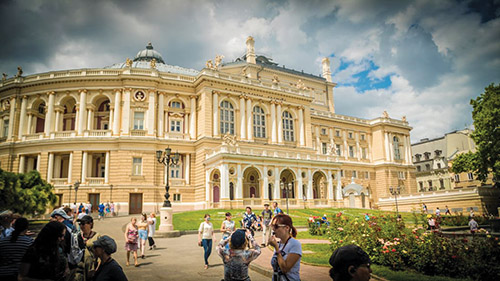

(Courtesy of Tzohar) The Soviet Jewry movement is often cited as one of the most important and successful Jewish activist efforts of recent decades.
And rightly so.
As a result of an international campaign, combining both public and clandestine activities reaching the highest levels of government, well over 1 million Jews would be blessed with freedom. And while Jews from the former Soviet republic would make their way all over the globe, the largest migration would come home to Israel in an aliyah that would transform the very nature of the state of Israel.
Years later, the acclimation of this community has been largely successful and these immigrants have made an indelibly positive mark on the makeup of the country.
Yet, in one of the most troubling and often unknown developments in modern Israeli society, the very Jewish identities of hundreds of thousands of these immigrants is constantly being questioned—most often by Israel’s religious authorities. As a result, when individuals of Russian and Ukrainian ancestry want to marry according to Jewish law, the authorities often put bureaucratic obstacles in their way. The couple can then face a difficult choice: find a way to prove that they are in fact of Jewish descent, or pursue a civil marriage outside of Israel. This is not only a decision with immediate consequences but one that will impact their children and the generations to come who would not be able to prove their Jewish roots.
Addressing this challenge has become the daily work of an increasingly important program called Shorashim (Roots), a project of the Israel-based Tzohar organization, and will also become the focus of an upcoming mission to the Ukraine to be led by Rabbi J.J. Schacter and Tzohar Founder Rabbi David Stav.
The mission, to take place May 15-21, will enable participants to understand firsthand the work of Shorashim to prove Jewish roots. This is a complex and often costly process that entails digging through yellowing archives hidden deep in small Ukrainian and Russian villages. The mission will provide a fascinating glimpse into that effort while also visiting sites around Ukraine associated with the rich Jewish history that defined that area for centuries, including Berditchev, Breslov, Kiev, Mezhiybizh and Odessa.
The challenges—and opportunities—inherent in the work of Shorashim were revealed in the recent case of one Israeli couple who went through the process ahead of their marriage. Sergei and Nitzan came from very different backgrounds. But like many couples in the diverse culture that is modern Israel, they met in the army and quickly knew they wanted to spend the rest of their lives together. The real challenge came when the couple finally decided to get married and learned that Sergei would need to prove his Jewishness.
Sergei had been born in Ukraine and, like for many Jewish children from that area, there were non-Jews within his extended family tree. Further complicating matters was the fact that certain key Jewish relatives had been killed in the Holocaust without any death records—in this case in the forest of Babi Yar outside of Kiev where tens of thousands of the city’s Jews were murdered over a few days in September 1941. Reconstructing the case of Sergei’s parents, grandparents and great-grandparents required extensive detective work involving Yad Vashem archives and testimony from relatives still living in Kiev. Eventually, the case was closed to the complete satisfaction of the rabbinate, and the couple married in a traditional Jewish wedding and has begun to build a proud Jewish family.
While particularly dramatic and complex, the case of Sergei and Nitzan is not unique and, to date, Shorashim has proven the Jewish roots of over 50,000 immigrants to Israel. For every case that Shorashim closes, the result is that some four or five additional family members are able to be verified as Jews. The organization works in close collaboration with the rabbinate and every case that Shorashim completes has been accepted by the rabbinical court.
Rabbi David Stav, who helped found Tzohar in 1996 as a way to bridge the social gaps between the Jewish communities in Israel, describes Shorashim as one of the most important ways to ensure the community of immigrants receives the dignity they deserve.
“For years we called on these Jews to come home, and, now that they have, we cannot turn our backs on them and say they aren’t good enough,” Rabbi Stav said. “This mission will allow people to understand the importance of this process while personally exploring the sites of a rich Jewish history that was destroyed in that region. I invite you to join myself, Rabbi Schacter and others on this voyage of discovery and help contribute to a process that will build a more united and proud future for Israel and the Jewish people.”
To find our more about the upcoming mission, please send an email to [email protected]�Registration for the mission will close by January 31.













